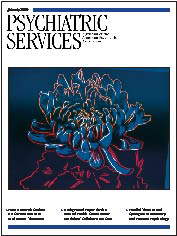Faith in Freedom: Libertarian Principles and Psychiatric Practices
Thomas Szasz's reputation has reached mythic proportions. For nearly half a century he has sought to alarm the public with what he believes to be the enslavement of persons with mental illness. Consistently and provocatively, he has cast psychiatry in the same light with which he views slavery, religion, communism, and witchcraft—socially oppressive institutions that a morally evolving society must overcome.
In his most recent book, Faith in Freedom: Libertarian Principles and Psychiatric Practices, Szasz continues in this vein, charging that psychiatry, like economics, is less about science than it is about exerting political and moral control. In the first section, drawing largely on his previous writings, Szasz argues that libertarianism and psychiatry are fundamentally incompatible: "Among the forces that retard economic development (prosperity) and personal development (mental health) are political oppression, paternalistic social policies, and excessive interest in God and religion—and, from our present interest most importantly, 'helping' individuals capable of helping themselves and having a duty to do so."
It is clear that Szasz garners a specific audience: current and would-be libertarians. He has remained a prolific writer, even though many psychiatric journals refuse to publish his work, but Szasz, now in his mid-eighties, admits that modern psychiatry is not likely to be expunged in his lifetime: "Abolishing this abomination [psychiatry] is an idea whose time has, assuredly, not (yet) come." However, this brief concession is no resignation; it is meant to incite. The thrust of Faith in Freedom is the mandate, "Libertarians must either subscribe to the mythology of mental illness and the use of violence it justifies, or reject the psychiatric creed and repudiate the deprivations of liberty it justifies." A subtler theme, perhaps, is ensuring that there are others who will carry on his fight.
Szasz's critique turns, in the second part of the book, to libertarians who "support the psychiatric enterprise, either explicitly or by their silence"—in other words, those who don't agree with his view. Boldly titled "Profiles: Where Some Libertarians Went Wrong," this section includes profiles of John Stuart Mill, Bertrand Russell, Ayn Rand, and Friedrich von Hayek. Each of the 11 essays is part biography, part praise, but mostly criticism. Szasz lauds each of these individuals for espousing the virtue of individual liberty, but criticizes them for failing to condemn the vice of involuntary psychiatry. Those who remain silent on the subject are counted among those who endorse psychiatry, for "silence itself is a kind of speech."
Although the book is extensively researched and well referenced, many portions read like a Szasz primer, with footnotes to his previous work stamped across the pages. The consistency of Szasz's view proves to be one of his shortcomings. I was surprised when several psychiatrists with whom I was interviewing for a residency position asked whether I thought Szasz was even worth reading, suggesting that his criticisms had largely and adequately been answered. I think there are good reasons for reading Szasz. Psychiatry is afforded great power among the medical specialties, both to restrict freedom and to confer socially stigmatizing labels. Thus it seems essential that anyone entering the field carefully consider the ethics of such actions. In addition, Szasz's critique of psychiatry—which began in the 1950s—must be credited, at least in part, with our focus on discovering the biological basis of mental illness.
I also offer this simpler justification: Szasz's voice ought to continue to be heard, if for no other reason than that it is the dissenting one.
At the time of writing Mr. Christopher was a fourth-year medical student at the University of Massachusetts Medical School in Worcester.



